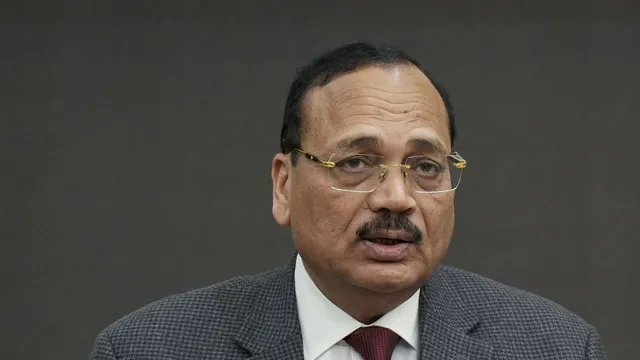- By PTI
- Thu, 30 Oct 2025 07:43 PM (IST)
- Source:PTI
Justice Surya Kant was on Thursday appointed as the 53rd Chief Justice of India and he will assume charge on November 24.
The Department of Justice in the Union Law Ministry issued a notification announcing his appointment.
Justice Surya Kant succeeds Justice Bhushan R Gavai, who demits office on November 23.
He will be the CJI for nearly 15 months and will demit office on February 9, 2027 on attaining the age of 65 years.
"In exercise of the powers conferred by the Constitution of India, the President is pleased to appoint Shri Justice Surya Kant, Judge of the Supreme Court of India as the Chief Justice of India with effect from 24th November, 2025," Law Minister Arjun Ram Meghwal said in a post on X.
"I convey my heartiest congratulations and best wishes to him," he added. Justice Kant, born in a middle-class family on February 10, 1962 in Hissar district of Haryana, became a top court judge on May 24, 2019.
He brings to the country's top judicial office a wealth of experience spanning two decades on the Bench, marked by landmark verdicts on abrogation of Article 370, free speech, democracy, corruption, environment and gender equality.
Justice Kant was part of the historic bench that kept the colonial-era sedition law in abeyance, directing that no new FIRs be registered under it until a government review.
He also nudged the Election Commission to disclose details of 65 lakh excluded voters in Bihar, showing his commitment to electoral transparency. He made history by directing that one-third of seats in Bar associations, including the Supreme Court Bar Association, be reserved for women.
Justice Kant was part of the bench that appointed a five-member committee headed by former Supreme Court judge Justice Indu Malhotra to probe the security breach during Prime Minister Narendra Modi's 2022 Punjab visit, saying such matters required "a judicially trained mind".
He also upheld the One Rank-One Pension (OROP) scheme for defence forces, calling it constitutionally valid, and continues to hear petitions of women officers in the armed forces seeking parity in permanent commission.
He was on the seven-judge bench that overruled the 1967 Aligarh Muslim University judgment, opening the way for reconsideration of the institution's minority status.
He was part of the bench which heard the Pegasus spyware case and which appointed a panel of cyber experts to probe allegations of unlawful surveillance, famously stating that the state cannot get a "free pass under the guise of national security".
(Disclaimer: Except for the headline, this article has not been edited by The Daily Jagran staff and has been published through syndicated feed by PTI.)

